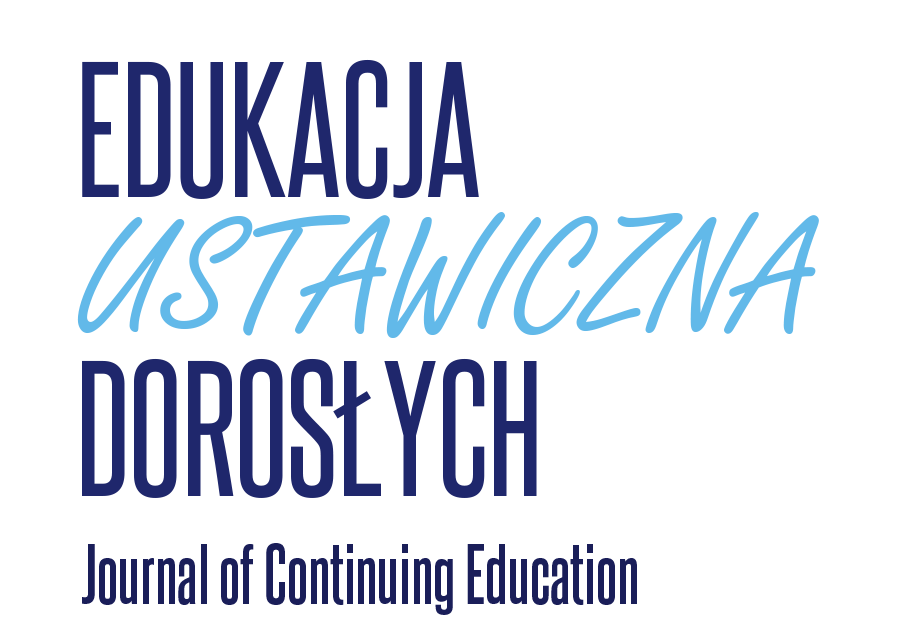„Having just completed a year of education, I have gained a desire for more struggles” - post- secondary medical school students on their participation in formal education ![]()
„Właśnie po roku edukacji nabrałem chęci do kolejnych zmagań” – słuchacze policealnych szkół medycznych o swoim udziale w edukacji formalnej
DOI: 10.34866/dyn9-sb80
Anna Orlińska
ORCID: 0000-0001-8495-4693
Słowa kluczowe: edukacja dorosłych, edukacja formalna, koncepcja uczenia się przez całe życie, średnia dorosłość
Key words: adult education, formal education, lifelong learning concept, middle adulthood.
Streszczenie: : Artykuł przedstawia wyniki badań, zrealizowanych w czerwcu 2022 roku wśród słuchaczy (będących w okresie średniej dorosłości) kończących edukację formalną w medycznych szkołach policealnych. Celem badań było poznanie opinii respondentów na temat własnego uczestnictwa w edukacji formalnej przed jej rozpoczęciem w kontrze do rzeczywistości po zakończeniu edukacji. Badania miały charakter ilościowy, wykorzystano w nich metodę wywiadu skategoryzowanego (ustnego, indywidualnego), a narzędziem badawczym był autorski kwestionariusz wywiadu. Zaprezentowany obraz dorosłych uczniów stawia ich w bardzo pozytywnym świetle, dając nadzieję, że osoby w środku życia mają świadomość potrzeby uczestnictwa w uczeniu się przez całe życie i co najważniejsze: ceniących wartość edukacji. Może to stanowić optymistyczną zapowiedź na przyszłość w konfrontacji ze statystykami wskazującymi, iż udział dorosłych w obszarze edukacji formalnej jest najniższy (3%). Problematyka ta staje się coraz bardziej aktualna i stanowi atrakcyjne podłoże do dalszych badań i rozważań, szczególnie w kontekście kształcenia całożyciowego.
Abstract: : This article presents the results of a study conducted in June 2022 among students (who are in middle adulthood) completing their formal education at medical post-secondary schools. The aim of the research was to find out the respondents’ views on their own participation in formal education before the start of their education versus the reality after the end of their education. The research was quantitative in nature, using a categorised (oral, individual) interview method, and the research tool was the author’s interview questionnaire. The results of the research put adult learners in a positive light, giving hope that people in the middle of life are aware of the need to participate in lifelong learning and most importantly: valuing the value of education. This may be an optimistic harbinger for the future when confronted with statistics indicating that adult participation in formal education is at its lowest (3%). This issue is becoming increasingly topical and provides an attractive ground for further research and reflection, especially in the context of lifelong learning.

